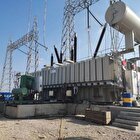South Korea's Consumer Price Rises 3.1 Percent in February

The consumer price index (CPI) gained 3.1 percent in February from a year earlier after climbing 2.8 percent in the prior month, according to Statistics Korea.
It continued to surpass the central bank's midterm inflation target of 2 percent.
The Bank of Korea (BOK) has left its benchmark interest rate unchanged at 3.50 percent since January last year.
Price for agricultural, livestock and fishery products advanced 11.4 percent in February on a yearly basis, raising the overall inflation by 0.85 percentage points.
Agricultural product price soared 20.9 percent in January after jumping 15.4 percent in the previous month.
Livestock product price added 1.1 percent, and fishery product price increased 1.8 percent.
Oil products price slipped 1.5 percent in February from a year earlier after retreating 5.0 percent in the prior month.
Gasoline price was up 2.0 percent, but those for diesel and kerosene slumped 5.7 percent and 6.9 percent each.
Price for industrial products, including oil products, went up 2.1 percent last month, higher than an increase of 1.8 percent in the previous month.
The processed food price climbed 1.9 percent in February after growing 3.2 percent in the prior month.
Price for electricity, natural gas and tap water rose 4.9 percent last month, pulling up the inflation by 0.19 percentage points.
Electricity bill picked up 4.3 percent, with city gas and heating costs going up 5.6 percent and 12.1 percent each.
Private service price, including eating-out cost, increased 3.4 percent last month, and public service price added 2.0 percent.
The eating-out expense advanced 3.8 percent, drawing up the inflation by 0.53 percentage points.
Housing rent, including Jeonse and monthly rent, declined 0.1 percent in February from a year earlier.
Jeonse is South Korea's unique contract between two households where a landlord grants the two-year residential right to a tenant, who in turn lends a certain amount of money, or deposit, to the landlord.
The livelihood data-x-items index, which gauges the price for daily necessities, expanded 3.7 percent in February after gaining 3.4 percent in the previous month.
The fresh food index, which measures the price for fish, shellfish, fruit and vegetables, surged 20.0 percent in February, faster than an increase of 14.4 percent in the prior month.
Demand-side inflationary pressure hovered high. The core consumer price index, which excludes volatile agricultural and oil products, climbed 2.6 percent last month.
The OECD-method core price, excluding volatile energy and food costs, increased 2.5 percent.
4155/v
























